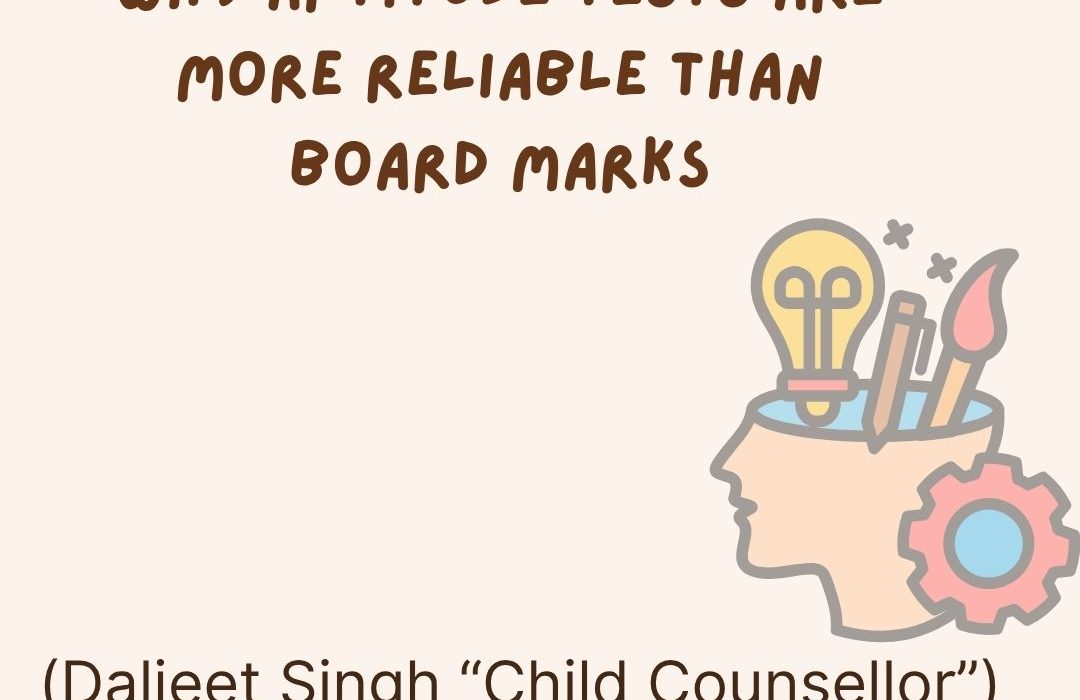In my two decades as an English language trainer and career counsellor, I’ve met hundreds of students who performed well in exams but felt lost when it came to choosing the right career path. I’ve also seen the opposite—average scorers with remarkable potential in creative or analytical fields.
So, what’s the disconnect? It’s the overreliance on board marks.
Let’s be clear: board exams are important. They teach discipline, time management, and knowledge recall. But they are not the best indicators of a child’s true capabilities.
Board Marks Reflect Academic Performance, Not Aptitude
Board exams primarily test:
A child scoring 90% might still struggle in real-world problem-solving or team collaboration. Similarly, a student with 65% may have exceptional creativity, critical thinking, or spatial reasoning—skills that aren’t measured by traditional exams.
Aptitude Is About Natural Strengths
Aptitude tests evaluate areas like:
- Logical reasoning
- Verbal ability
- Spatial and visual thinking
- Creativity
- Numerical ability
- Decision-making speed
These tests uncover what comes naturally to a student, regardless of how they perform under pressure. That’s why they’re incredibly useful when choosing a career path.
Marks Can Fluctuate. Aptitude Remains Stable.
One bad day, illness, or emotional stress can tank a student’s score.1 But aptitude tests are objective, standardized, and not affected by external factors like exam anxiety.2
They’re not about competing—they’re about understanding oneself.
Aptitude Helps in Choosing the Right Career
Imagine this: A student scores well in science but struggles emotionally with the subject. Their aptitude test reveals strong interpersonal and linguistic skills—they’d flourish in psychology, counselling, or even journalism.
Choosing a career based on marks might push them toward engineering. Choosing it based on aptitude lets them thrive, not just survive.
What Should Parents and Students Do?
- Stop using marks as the only measure of potential.
- Start early with aptitude assessments (ideal from age 13+).
- Consult a qualified career counsellor.
- Let your child explore interests that align with their natural strengths.
Final Thoughts
As a parent or educator, you want your child to succeed—but also to be happy in their career. That journey starts with knowing who they are—not just what marks they get.
Want to explore your child’s true potential?
Let’s talk. I offer one-on-one aptitude-based counselling sessions designed to uncover your child’s strengths and map out the right path.
DM me or call at 9814927250
Daljeet Singh
Career Counsellor | English Language Trainer | Child Guidance Expert






Leave feedback about this